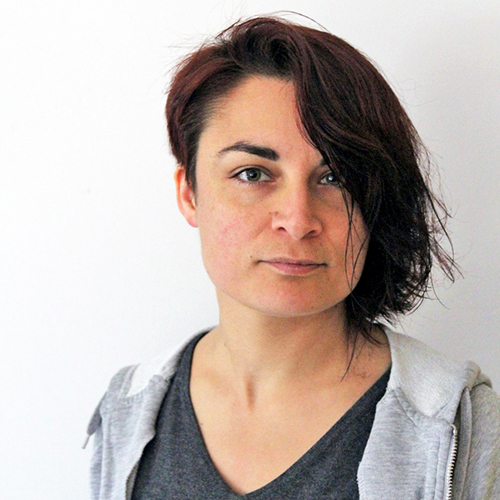 IBCLC Detailed Content Outline: Pharmacology and Toxicology Focused CERPs - Section IV
IBCLC Detailed Content Outline: Pharmacology and Toxicology Focused CERPs - Section IV
Access CERPs on Pharmacology and Toxicology for the IBCLC Detailed Content Outline recertification requirements. Enjoy convenient on-demand viewing of the latest Pharmacology and Toxicology focused IBCLC CERPs at your own pace.


Ted Greiner received a PhD in nutrition for developing countries from Cornell University. For 19 years he worked as nutrition advisor for the Swedish International Development Cooperation Agency, based at Uppsala University where he was Associate Professor of International Child Health, helping to ensure their long-term support for IBFAN and WABA. Dr. Greiner was Professor of Nutrition at Hanyang University in South Korea for seven years. He has consulted for UNICEF, World Bank, FAO and others. He is now retired and edits the journal World Nutrition. He has lived in 8 countries and worked in 10 more. His areas of research expertise include infant feeding and programs to combat vitamin A, iron and iodine deficiency. In the 1970s, he did the first scientific work on the impact of baby food advertising on breastfeeding patterns. His PhD dissertation was on the planning and evaluation of a 1978-81 project to protect, support and promote breastfeeding in Yemen (terminology quickly adopted by UN agencies). Over the next decades, the duration of breastfeeding there doubled. During the planning the Innocenti meeting, he represented Sida, one of the 4 agencies involved. He was active in changing how WHO viewed HIV and infant feeding. He has over 100 breastfeeding-related publications.
Moderate alcohol use by breastfeeding women appears to be relatively common. Alcohol concentrates in breast milk at levels similar to maternal blood, peaking at 30-60. Most studies find no link with the duration of breastfeeding. However, seven studies have found a link with a shorter duration of exclusive breastfeeding. Alcohol affects oxytocin release, leading to reductions in breast milk consumption in the following hours and reduces infant sleep, both temporary if the mother does not continue to drink. These effects on the infant and the breastfeeding process could be interpreted by mothers as signs of infant dissatisfaction with their breast milk, “insufficient milk,” or other causes for premature supplementation. Chronic alcohol consumption may have a number of more serious effects, including on infant development, but research is limited. Younger infants tolerate alcohol worse, so abstention or avoidance of infant exposure for the first months of breastfeeding may be wise. Messages to mothers on this issue are conflicting, confusing and often outdated. Too little is done to teach mothers how to reduce infant exposure. Research is needed in different cultures into whether various forms of cautionary messages are likely to discourage breastfeeding.

View Details / Enroll

An Evidence-Based Guide to Using Domperidone as a Galactagogue

Associate Professor Luke Grzeskowiak is a clinical pharmacist and Practitioner Fellow in the College of Medicine and Public Health at Flinders University and the South Australian Health and Medical Research Institute, Australia. He is passionate about improving health outcomes for mothers and babies through the development and promotion of more effective and safer approaches towards medicines use. Luke has been undertaken research involving the use of domperidone for 10-years. He is currently the lead investigator on a number of projects examining the use of domperidone to increase breast milk supply in clinical practice, predictors of treatment response to domperidone, and causes of low breast milk supply. He is also the lead investigator on a large clinical trial comparing the effects of different doses of domperidone in the treatment of lactation insufficiency. He has published widely on the topic of treatment for low breast milk supply, with many of these publications cited in clinical practice guidelines locally and internationally.

Breastfeeding and Neonatal Abstinence Syndrome

Amber Valentine is a Speech-Language Pathologist who graduated from the University of Kentucky with her MS in Communication Disorders. She is a Board Certified Specialist in Swallowing and Swallowing Disorders and an International Board Certified Lactation Consultant, as well as a Certified Neonatal Therapist (CNT). She worked for Baptist Health Systems, Inc for 8 years before moving to Florida where she worked for Wolfsons Children’s Hospital and Mayo Florida. She is now back in Kentucky working for Baptist Health Lexington. She has experience in adults and pediatrics with feeding and swallowing difficulties including: bedside swallow evaluations, Modified Barium Swallow studies, FEES, and pediatric feeding evaluations including NICU. She has experience with head and neck cancer patient including evaluation and treatment of swallowing difficulties, PMV use, and voice after total laryngectomy including TEP. She has provided guest lectures for the University of Kentucky, Eastern Kentucky University, and the University of Louisville on feeding and swallowing topics. She has presented at the hospital, local, state, national, and international levels on pediatric feeding/swallowing and breastfeeding.
Topic: Breastfeeding Medically Complex Infants in the Neonatal ICU - [View Abstract]
Topic: Building a Successful Breastfeeding Program in the NICU: Challenges and Practical Solutions - [View Abstract]
This presentation is designed to discuss the role of feeding therapy, breastfeeding, and family dynamics with infants with neonatal abstinence syndrome. These baby/family dynamics can be complex situations and feeding difficulties are extremely common. Breastfeeding education/information can be implemented prior to birth along with other education for families to promote more infant/family bonding and reduce stress of being born in substance exposure. Breastfeeding dramatically reduces stress signs in infants exposed to substances neonatally. Working together as an interdisciplinary team, we can set these families up for more successful feeding opportunities and decreased stress in developmental care.

View Details / Enroll


Katrien Nauwelaerts graduated as a prehistoric archaeologist in 2005. She's the mother of three breastfed children and the administrator of the Dutch breastfeeding-website Borstvoeding Aardig, https://borstvoeding.aardig.be. Katrien worked as a volunteer breastfeeding-counsellor, provincial coordinator and training manager for the Belgian breastfeeding organisation Borstvoeding vzw between 2010-2014. Up tot 2018 she was the founder and president of Aardig Leven vzw, a non profit ecological organisation. In 2013 she became an IBCLC. Since 2013 she's working as a lactation consultant at her own private practice Borstvoeding Aardig. She became a nutritionist and a herborist in 2014. Katrien shares her experiences and knowledge on lactation consulting as a public speaker since 2014.
Topic: Breastfeeding and The Use Of Herbs - [View Abstract]
Topic: Young Mothers and Breastfeeding in Belgium - [View Abstract]
The medical use of herbs is as old as mankind. In this lecture IBCLC and herborist Katrien Nauwelaerts explains the difference between the regular medical approach of breastfeeding problems and the more holistic solutions used in phytotherapy. Katrien Nauwelaerts explains how the use of herbs can support and sometimes even replace the more traditional clinical treatment of breastfeeding problems such as postpartum depression, low milk supply, oversupply, engorgement, breast infection, plugged ducts, mastitis, candidiasis, thrush, and Raynaud Syndrome etc.

View Details / Enroll

Breastfeeding Medically Complex Infants in the Neonatal ICU

Amber Valentine is a Speech-Language Pathologist who graduated from the University of Kentucky with her MS in Communication Disorders. She is a Board Certified Specialist in Swallowing and Swallowing Disorders and an International Board Certified Lactation Consultant, as well as a Certified Neonatal Therapist (CNT). She worked for Baptist Health Systems, Inc for 8 years before moving to Florida where she worked for Wolfsons Children’s Hospital and Mayo Florida. She is now back in Kentucky working for Baptist Health Lexington. She has experience in adults and pediatrics with feeding and swallowing difficulties including: bedside swallow evaluations, Modified Barium Swallow studies, FEES, and pediatric feeding evaluations including NICU. She has experience with head and neck cancer patient including evaluation and treatment of swallowing difficulties, PMV use, and voice after total laryngectomy including TEP. She has provided guest lectures for the University of Kentucky, Eastern Kentucky University, and the University of Louisville on feeding and swallowing topics. She has presented at the hospital, local, state, national, and international levels on pediatric feeding/swallowing and breastfeeding.
Topic: Breastfeeding Medically Complex Infants in the Neonatal ICU - [View Abstract]
Topic: Building a Successful Breastfeeding Program in the NICU: Challenges and Practical Solutions - [View Abstract]
Feeding is the most complex task of infancy, even in term babies with no complications. There are many diagnoses, conditions, syndromes, and co-morbidities that can impact feeding in neonates and infants. This talk will briefly highlight many of those, but we will focus on three specific populations of interest –Cleft lip and palate, Infants of Diabetic Mothers, and Down Syndrome. We will discuss the specific implications these conditions can have on feeding, why these infants may have difficulty, and the classic symptoms one could expect to see. The differences between delayed and disordered feeding will also be addressed. Strategies and adaptions for both breast and bottle feeding will be discussed. Positioning, nipple flow rate, and external strategies will be explained. Case studies will be shared at the end of the presentation.

View Details / Enroll

View Details / Enroll

Cannabis Use During Lactation: Evidence-Based and Parent Centred Care
 Treasure McGuire,
PhD, BSc, BPharm, GradDipClinHospPharm Adv Prac Pharm, GCHEd, CertIVTAE, FACP, FPS
Treasure McGuire,
PhD, BSc, BPharm, GradDipClinHospPharm Adv Prac Pharm, GCHEd, CertIVTAE, FACP, FPS

Associate Professor Treasure McGuire is a clinical pharmacist, educator, and researcher. She holds two senior appointments in her hospital role (as Assistant Director of Pharmacy, Practice and Development, Mater Health Brisbane) with 1) Bond University Medical School (as Associate Professor of Pharmacology and 2) The University of Queensland School of Pharmacy (as Associate Professor, Clinical). She is passionate about improving the consumer voice and health outcomes for mothers and babies through the development and access to more effective and safer approaches towards medicines use.
Treasure’s research is translational and evidence-based, focusing on patient centred-care and quality use of medicines in women’s and newborn health, medicines information, medication safety and complementary medicines. She has published widely and authored the chapter on Safe use of drugs while breastfeeding In Brodribb W, ed. Breastfeeding management in Australia, 5th ed, Melbourne: Australian Breastfeeding Association, 2019. She is a regular invited speaker at national and international conferences, with over 60 keynote addresses. In recognition of her services to medicines information, she received the Lilly International Fellowship in Hospital Pharmacy. In 2015, she was the recipient of the Sr Eileen Pollard Medal (Mater Research-UQ) for excellence in incorporating research into clinical care provision.
 Treasure McGuire,
PhD, BSc, BPharm, GradDipClinHospPharm Adv Prac Pharm, GCHEd, CertIVTAE, FACP, FPS
Treasure McGuire,
PhD, BSc, BPharm, GradDipClinHospPharm Adv Prac Pharm, GCHEd, CertIVTAE, FACP, FPS
Cannabis is the most consumed psychoactive drug, with global estimated use approaching 200,000 million people. Legalization in different countries, together with apparent safety perception, has led to increased cannabis use by up to 5% of pregnant and breastfeeding women. This presents significant challenges for health professionals who promote breastfeeding. As central nervous system drugs need to be sufficiently lipophilic to pass the blood brain barrier, there will be extensive cannabis passage into lipophilic breast milk. Pre- and post-natal exposure is likely to impact not only on the mother but may also induce neurobiological alterations in the infant that persist beyond the first 1000 days of life. This presentation will take an evidence-based approach to outline the pharmacology, potential benefits, and risks of the main cannabinoids (THC and CBD) used in their various dose forms (ingested oils, topical gels or inhalation of buds by pipe or vaporizer). It will focus on the available evidence, potential consequences, and considerations when cannabis is used in lactation. Regardless of personal opinion, it is imperative that women feel comfortable to ask questions of their primary health care professionals about cannabis use or misuse while breastfeeding, to promote harm minimization.

View Details / Enroll


Joke graduated as a Midwife in 2006 and a Master in Midwifery in 2008. She obtained the IBCLC lactation consultant degree in 2011. She graduated in specialised applied pharmacology in 2015. She has experience as midwife and lactation consultant in her own primary care practice, lecturer at the University College Brussels, head editor of the Flemish Journal of Midwifery and board member of the Flemish Organisation of midwives and ELACTA. At the moment Joke is also a researcher on COVID-19 vaccination during lactation at the University of Brussels.
Topic: Ready-Made Educational Breastfeeding Material to Improve Parental Education and Empower Parents. - [View Abstract]
Breastfeeding parents will encounter the SARS-CoV-2 virus and may contract COVID-19. The availability of new vaccines against COVID-19 created a need for guidance about vaccination during lactation. We aim to get an insight into the effects of COVID-19 vaccines during the lactation period. This entails the safety of vaccination during lactation, the immune response in lactating women and the excretion of immunological factors in breastmilk. Not a lot is known about the transfer of immunoglobulin A (IgA) and the mechanisms by which these antibodies provide protection to the neonate via breast milk. This presentation contributes to the knowledge of SARS-COV-2 infections and the use of different vaccine-platforms during breastfeeding and will benefit the population with respect to public health. As vaccination during lactation could result in clinically relevant sIgA-titers in breastmilk and protecting the child in early life, it is of importance that women have this information to decide whether to take the vaccine.

Decision Making and Psychiatric Medications in Pregnancy and Lactation

Rebecca Feldman is Certified Nurse Midwife, and Psychiatric Nurse Practitioner who practices in a dual role in the field of reproductive psychiatry. She is the founder and director of Brooklyn Parent Support, a group mental health practice providing group and individual therapy and medication management. Rebecca is a graduate of Frontier Nursing University in midwifery, and New York University with a Post Master’s in Psychiatric Nursing. She has practiced perinatal psychiatry at the Motherhood Center of New York, and Zucker Hillside Hospital. As a midwife, she created a mental health program housed within the Department of Obstetrics and Gynecology at Woodhull Medical Center, a large public hospital in Brooklyn. She is currently an adjunct professor at New York University, providing lectures to the midwifery and psychiatric nurse practitioner programs. A frequent guest speaker on the topic of promoting access to parental mental health care, she has recently presented for the American College of Nurse-Midwives, the National Perinatal Association, and Postpartum Support International.
Perinatal mood and anxiety disorders are the most common complication of pregnancy. Midwives have a key role to play in assisting clients with decision making around use of psychiatric medications in pregnancy and lactation. This presentation will explore client considerations around mental health in pregnancy and postpartum, including the risks of untreated mental illness in these life phases. How midwives may counsel their clients as well as when to refer them for mental health care, will be an additional element of this presentation.
Common Post-partum Mood and Anxiety Disorders will be described in detail as well as a summary of evidence-based treatment options. Following this part of the presentation, the main classes of psychiatric medications commonly used in pregnancy and lactation will be described. Considerations for the use of SSRIs, atypical antipsychotics, mood stabilizers and benzodiazepines will be discussed.

View Details / Enroll


Rania Abdou is a Pediatrics and neonatology consultant at Faculty of medicine, Ain shams university where she teaches Pediatrics and neonatology courses. She earned a Diploma in the clinical nutrition from the European society for clinical nutrition and metabolism. Dr. Rania is also a certified international lactation consultant since 2013. She has dedicated much of her time to the improvement of breastfeeding practice between Egyptian women. Previously, she worked as a clinical director of the neonatal intensive care unit of ain shams university pediatric hospital and vice-director of the pediatrics department at the ain shams specialized university hospital.
The commonest reason of interrupted exclusive breastfeeding is assumption of insufficient breastmilk. Fenugreek has been traditionally used by Egyptian women to increase milk supplementation. However, this practice has not been scientifically evaluated yet. We elucidated fenugreek-tea effect on expressed breast milk quantity by a Comparative study on 2 groups of healthy mothers according to fenugreek consumption whom baby was admitted to Ain shams University NICU for more than 2 weeks and expressed breastmilk using manual breast pump divided into. Results showed earlier increase in mean breastmilk-volume in fenugreek group. Significant difference of pumped breastmilk quantity between groups at day 3 & 8 where fenugreek group showed higher volume yet at day 15 the net daily volume showed no significant difference between both groups. We concluded that fenugreek consumption may affect earlier stages of lactogenesis so can be used for satisfaction and reassurance in those stages.

View Details / Enroll

Empowering Breastfeeding in Women Receiving Medication-Assisted Treatment for Opioid Use Disorder: A Call for Policy Change

Dr. Kelly McGlothen-Bell is an Assistant Professor at UT Health San Antonio, School of Nursing. As a nurse scientist, Dr. McGlothen-Bell is dedicated to understanding and resolving perinatal-infant health disparities in underrepresented groups, particularly among mother-infant dyads impacted by substance use disorders and preterm births. Dr. McGlothen-Bell uses interdisciplinary research, bio-behavioral methodologies, and community-engaged strategies to define and explore health priorities that can be remedied through culturally appropriate and sustainable health solutions. Her program of science focuses on understanding the relationship between infant feeding behaviors and readiness in high-risk infants and attunement between the primary caregiver and child during infancy and toddlerhood. The culmination of these findings contributes to the development of evidence-based interventions geared toward improving parental engagement and pediatric feeding success in marginalized populations. Dr. McGlothen-Bell has published numerous peer-reviewed articles related to developmental strategies for high-risk infants. She has also presented her work at conferences nationally and internationally. Dr. McGlothen-Bell has received numerous awards to include the 2019 National Association of Neonatal Nurses (NANN) Mentee/Mentor Grant Award. She was also selected as a 2019-2020 Academy Jonas Nurse Policy Scholar.
Topic: Feeding Behaviors in the Opioid Exposed Infant - [View Abstract]
Inequitable access to mother's milk often disempowers those who may benefit the most from it's' benefits. Moreover, suboptimal breastfeeding has the potential to negatively impact the health and well-being of future generations to come. Mother's own milk is internationally accepted as the most optimal source of nutrition for infants, yet breastfeeding initiation and duration rates among minority populations (i.e., women with opioid use disorders [OUDs]) continue to lag significantly behind that of the general population. The implications of the current U.S. opioid crisis and its increasing influence on women of reproductive age presents important considerations for the ways women and infants may receive inequitable access to breastfeeding and the benefits of mother's milk. In this presentation, learn the keys needed to empower lactation support providers to advocate for the use of scientific evidence that informs breastfeeding practices for women receiving MAT for OUD.

View Details / Enroll


















